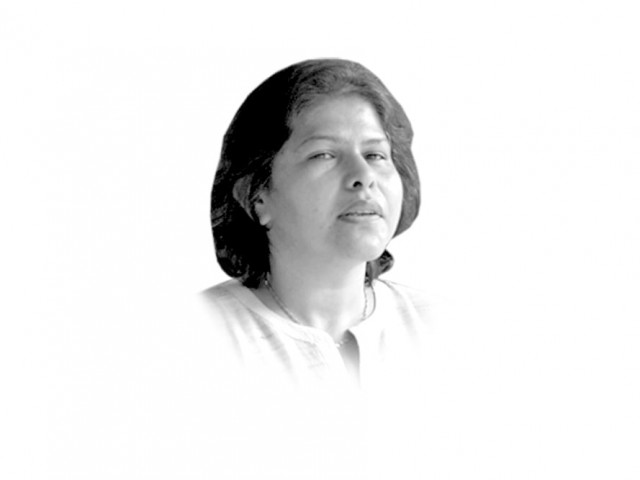Why places don’t grow
Becoming part of the mob, empowering oneself via freedom of action is basic human need, absence of which kills growth.

The writer is an independent social scientist and author of Military Inc.
Lest we forget urbanisation is not just about greater economic activity and presence of multiple opportunities. Surely, this is a key reason, which causes internal migration in a country. Relative safety is another reason why people abandon their place of origin and move to an urban centre or an area. However, an aspect that tends to be ignored in our writings is the role that social life plays in convincing people to move. A better educational institution is just one part of social life. The other aspect pertains to greater freedom of movement that bigger towns offer. This is particularly critical for those moving from village-towns where people’s lives are bound by predetermined and rigidly defined cultural and social values. While travelling around Punjab, I was amazed to know that, for instance, families in Gujranwala do not go to restaurants. Eating out with your family members, especially when it involves women, is done in Lahore where they have the comfort of relative invisibility. People will not necessarily recognise you and thus, you can take the risk of exposing your female family members –– who are considered an extension of male honour.
Invisibility is part of a cultural process and dialogue within a society. In village-towns, which are abundant in Pakistan, the dialogue is missing that can help develop cultural life. As mentioned earlier, people are stuck with predefined norms. The concept of pride, honour, fear and many other human perceptions does not undergo change. Since most actors in a rural setting are familiar with one another, there is hardly any dialogue to redefine cultural values based on influences from other groups. Towns and cities that grow out of villages tend to have a rural instinct for a very long time, especially until they undergo the essential sociocultural transformation (for a very long time Karachi was the only urban environment that Pakistan had. The rest was village-towns or village-cities).
Recently, at a family wedding, I saw how the absence of cultural dialogue and willingness to change suppresses social development and growth. Some of the old family members were not abreast of the need of the younger generation to abandon traditional concepts of honour and adapt to newer ways of life. For instance, a family gent had a serious issue allowing a music band to perform despite the facts that the performers were his kid’s age. Another one, whose son also sang in the same music group, instructed his wife to observe purdah. For the wife, the idea was ridiculous since the kids in the band called her ammaan. There was no dialogue over the fact that the purdah was selective, since the waiters from a close-by town roamed around freely, or that these women took off their chaddars the minute they were in Lahore or any other city. So, they may not be convinced of the need to observe purdah but are merely following a tradition that is dictated from the top and is not being renegotiated.
I was also reminded of the fact that one of the reasons that the local elite tend to abandon their areas, which is certainly what has happened with most towns in south Punjab, is due to lack of social space. For all our negative imagination of the elite, the fact is that this socioeconomic group is a key driver in any part of the word for developing sociocultural norms (and by the way, elite is not static. Every society keeps generating its elite). However, smaller places have a problem with the process of redefinition. In south Punjab, the double whammy is the overarching culture of feudalism that determines sociocultural norms. As is obvious from the incident narrated above, the men are guided by their false sense of honour that is a by-product of a feudal setting. The smaller movements for change that happen in every family do not converge into a larger debate and, thus, a change in norms.
The manner in which feudalism operates socio-culturally was most obvious to me during my dialogue with people in Muzaffargarh. The fact that Hina Rabbani Khar did not interact with her constituents and her entire politics was handled by her father and other male members of the family represents that particular narrowness in thinking. There were people who even claimed that her father’s minions make sure that he doesn’t watch clips or news of his daughter shaking hands with foreign dignitaries. Under the circumstances, the natural instinct of an educated Khar female (or many others like her) would be to find refuge in bigger cities where they can be relatively invisible. It is also worth adding that such definition of honour is defined by the elite and has nothing to do with the local culture, as generally, there is freer interaction between men and women in southern Punjab and Sindh. So, honour, as defined by the elite, is to differentiate them from the commoners. Little do they realise that becoming part of the mob and empowering oneself through freedom of action is a basic human need, absence of which kills the growth of a place.
Published in The Express Tribune, April 24th, 2014.
Like Opinion & Editorial on Facebook, follow @ETOpEd on Twitter to receive all updates on all our daily pieces.
















COMMENTS
Comments are moderated and generally will be posted if they are on-topic and not abusive.
For more information, please see our Comments FAQ